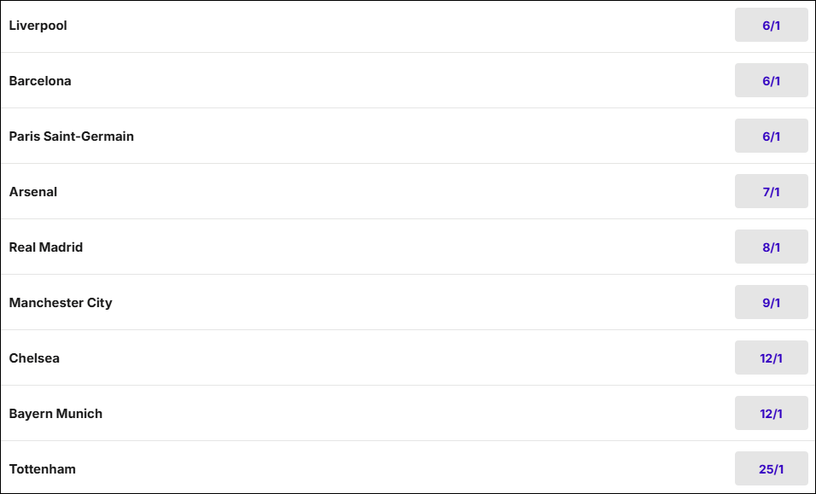For decades, Chelsea Football Club has been known for its strong defensive strategies. From historic title-winning squads to modern tactical innovations, Chelsea’s defence has played a key role in their success on the European stage. This article examines how these defensive tactics have influenced the team’s performance in the Champions League over the years.
Chelsea’s defensive strength has been a fundamental aspect of their footballing approach. The club’s ability to adapt and refine its defensive tactics has consistently enhanced its performance in European competitions. Over the years, Chelsea has demonstrated a unique blend of tactical discipline and flexibility, allowing them to maintain a competitive edge in various footballing environments. The evolving nature of these strategies not only highlights the club’s commitment to excellence but also emphasises the importance of defence in determining Champions League odds outcomes.
Defensive Tactics During Key Periods

Chelsea’s history includes significant periods characterised by strong defensive setups. Under managers like José Mourinho and Carlo Ancelotti, the team employed disciplined and organised defensive strategies. Mourinho’s era was particularly noted for its defensive focus, where maintaining a solid backline and capitalising on counter-attacks were crucial. This approach was instrumental in Chelsea’s success, leading to multiple domestic titles and solid performances in Europe.
Another notable period was under Antonio Conte, who introduced a three-at-the-back system that revitalised Chelsea’s defensive game. The 3-4-3 formation not only strengthened their defence but also provided flexibility in transitioning from defence to attack. This strategic shift was key in winning the Premier League during Conte’s first season. These historical tactics show how well-crafted defensive strategies can lead to success both domestically and in Europe.
Key players like John Terry and Ricardo Carvalho were central figures in these periods, embodying the club’s defensive ethos. Their leadership and understanding of tactical nuances made them indispensable, further highlighting how individual brilliance complements collective strategic efforts.
Adapting to Modern Football Demands
As football evolved, so did Chelsea’s approach to defence. The transition from traditional formations to more fluid systems reflects an adaptation to contemporary football demands. Under Thomas Tuchel’s management, Chelsea adopted a more dynamic style that combines possession-based play with defensive solidity. Tuchel’s arrival saw the implementation of a back-three system that allowed greater control of the midfield while maintaining a sturdy defence.
This evolution is evident in Chelsea’s recent successes in Europe, notably their 2021 Champions League victory. The team’s ability to switch between formations mid-game has made them unpredictable and difficult to break down. Such adaptability is crucial in modern football, where flexibility can be as important as tactical discipline.
The integration of players like Thiago Silva and Reece James into these modern setups illustrates how new talents are seamlessly incorporated into Chelsea’s tactical framework. Their performances have helped ensure that Chelsea remains at the forefront of European football by continuously adapting their defensive strategies to meet contemporary challenges.
Defence and Champions League Performance
Chelsea’s success in the Champions League over recent years can be directly linked to their evolving defensive strategies. Strong defensive performances have often laid the groundwork for deep runs into the tournament stages. Notably, during their 2012 and 2021 campaigns, Chelsea displayed exceptional defensive resilience against some of Europe’s top teams.
The ability to keep clean sheets against formidable opponents has boosted confidence and allowed the attacking unit more freedom to express themselves without excessive pressure. This balance between defence and attack is crucial for sustained success at such high levels of competition.
Defensive tactics also play a significant role in shaping perceptions around Champions League odds for Chelsea each season. Analysts often consider a team’s defensive capabilities when assessing potential outcomes, reflecting how integral this aspect is to overall success.
Fan Interest in Tactics and Champions League Odds

Chelsea fans are deeply interested in analysing their team’s tactical approaches, especially regarding defence. This engagement is not only limited to match-day discussions but extends into predicting outcomes based on current form and tactical setups. Understanding how Chelsea’s defence will hold up against elite European sides is often reflected in fan expectations and predictions about Champions League odds.
The link between solid defence and favourable odds is something fans recognise keenly. A robust backline gives supporters confidence that the team can withstand pressure from top opponents, thereby increasing hopes for positive results in key matches.
This relationship between fan engagement and tactical analysis underscores the broader importance of defence within competitive football frameworks. It highlights how supporters’ insights can echo professional analyses, creating a shared narrative around the club’s strategic decisions.

